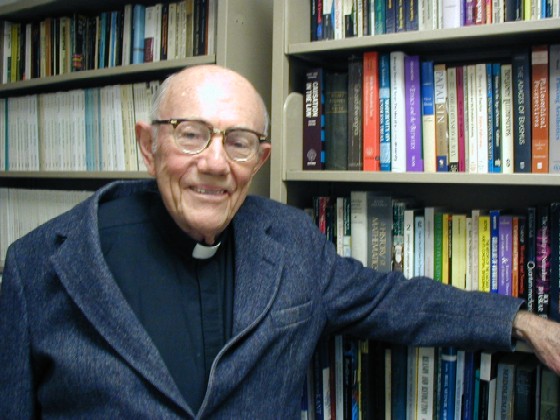
AnthonyFlood.com
Panentheism. Revisionism. Anarchocapitalism.


From The Review of Metaphysics, 48, June 1995, 890-891. A review of W. Norris Clarke. Person and Being. The Aquinas Lecture, 1993. Milwaukee: Marquette University Press, 1993. 121 pp. $15.00.
Review of W. Norris Clarke, Person and Being
James W. Felt, S.J.
In this lecture Clarke undertakes a “creative retrieval and completion” of St. Thomas Aquinas’s metaphysics of the human person. He thereby also illustrates how the concept of person, drawn partly from theological grounds, provides an enriching new perspective on St. Thomas’s metaphysics.
First he shows how Thomas’s conception of the act of existence is dynamic and expansive, not only present in itself as “first act,” but naturally pouring over in a “second act” to give itself to others in self-expression and self-communication through action. This highlights the relational aspect of being, so that to be is to be oriented toward relations and ultimately toward community. When this notion is applied to person, the highest perfection and most intense expression of existential being, the person is seen as naturally exercising expansive, self-com-municating act, now raised to the order of self-consciousness and freedom. To be a person is to be with, in sharing, receiving, and loving. This relational aspect of the human person reflects the personal nature of God as revealed in the doctrine of the Trinity. “To be fully a person,” he writes, “consists in living out to the full the alternating rhythm of self-possession and openness to others” (p. 113), and he argues that such a concept of the person sums up and completes the intrinsic thrust of Aquinas’s metaphysics.
This lucid and powerful little essay gives Clarke the opportunity of setting into coherent expression a lifetime of insights on the direction of Aquinas’s thought. On the way, he stresses the need to balance a theory of the relationality of being—so much stressed in various movements of contem-porary philosophy—with that of a properly under-stood notion of substance, of the introverted or in-itself dimension of being. Perhaps the most remarkable insight he here develops, while acknowledging that it is relatively new in his own thinking, is that of the natural receptivity of being. This relation of receptivity, already implicit in the doctrine of the Trinity, is shown not to entail imperfection but on the contrary to connote a positive perfection without which the self-communication of being would be impossible. Though Thomas, through historical accident, did not explicitly develop this point, Clarke shows that it is a natural extrapolation of Thomas’s thought. Indeed, one could say that it is the pivotal concept by which the Aristotelian God of pure contemplation becomes the Christian God of love, and the Aristotelian ideal of the contemplative life becomes the Christian ideal of the person living in intelligent, free, and loving com-munion with others and with God.
Posted June 21, 2011